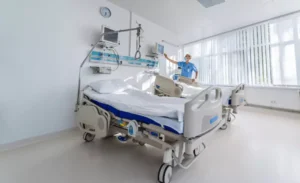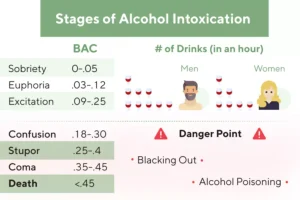The strength and duration of action of benzodiazepines are important in what conditions they treat. Short-term or emergency conditions usually merit the use of stronger, short-acting benzodiazepines. Chronic, non-emergency conditions are usually treatable with lower-strength, longer-acting benzodiazepines. Every prescription comes with a package insert that includes instructions for use and precautions.
Limit daytime naps
The percentage of REM sleep in the first half of the night was not decreased onthe first drinking night at either the 0.03 or 0.10% BAC doses in the Feige et al. (2006) study. However, REM density (ameasure of the number of eye movements per unit time) was significantly reduced on allthree drinking nights for the 0.10% BAC relative to baseline, and recovered tobaseline with no evidence of rebound on the first recovery night (Feige et al., 2006). (1980) reported that REM sleep in the first half of the first drinking night(7.0 ± 3.1%) and of the ninth drinking night (9.5± 3.18%)was lower than baseline (17.26 ± 2.20%), although the difference was notstatistically reliable in this small sample. Even though alcohol might seem like it’s helping you sleep well, it’s probably doing the opposite. “It increases your sleepiness, but decreases your quality of sleep,” Mukkavilli says.
1. Common sleep-related problems

Anyone experiencing insomnia should speak with a doctor to learn more about what treatments may work best for them. Consuming certain substances, such as alcohol, can disrupt sleep schedules. This is because alcohol works as a central nervous system depressant.
Sleep Apnea and Alcohol

One benzodiazepine that’s noteworthy — even though it’s not approved (and illegal) in the United States — is flunitrazepam. This drug is best known as Rohypnol (or by the alcohol insomnia slang term “roofies”), and it’s infamous for its use as a “date rape” drug. As a result, flunitrazepam is a well-studied drug in the U.S. (and in many places worldwide).
Sleep duration, hypnotic drug use, and risk factors: cross- sectional study
While some people find that drinking alcohol helps them fall asleep more easily, alcohol ultimately has a negative impact on sleep. Even in moderate amounts, alcohol consumed in the hours before bedtime can cost you sleep and leave you feeling tired the next day. Abnormalities in the timing of REM sleep wouldappear to last longer into the abstinence period. The role of circadian misalignment indisturbed brain reward function, and its role in the development of alcohol use disorders isthe subject of a recent review by Hasler and Clark (2013).

That’s right, the traditional “happy hour” time is actually when the body is most prepared to process that cocktail. If that mimosa with brunch hits you particularly hard, it may be the result of circadian timing. Circadian rhythms affect how the body responds to alcohol, depending on the timing of alcohol intake. Long-established research shows the body metabolizes alcohol differently at different times of day. Studies have shown the body is more effective at processing alcohol at certain times of the day than others. The liver acts as a filtering system for the body, helping metabolize food and chemicals (including alcohol itself), and pulling toxins from the bloodstream.
- Your healthcare provider will likely recommend that you don’t work or drive right after you start taking benzodiazepines.
- But while you may think a few beers or glasses of pinot lull you into slumber, alcohol before bed actually messes with your sleep.
- Many countries, including the U.S., classify benzodiazepines (sometimes known by the slang term “benzos”) as controlled substances.
- Alcohol consumption decreases melatonin production — regardless of whether the sun is down.
The study revealed that alcohol reduced the restorative quality of sleep. Specifically, a low alcohol intake decreased the physiological recovery that sleep normally provides by 9.3 percent. In two separate studies, up to 28% of people said they use alcohol to help them fall asleep. “If you experience insomnia, mood imbalances and other brain symptoms, it may be best to cut back alcohol intake overall,” Dr. Scheller adds.
Alcohol and Insomnia: That Nightcap Might Keep You Up at Night
Ultimately, alcohol can decrease the amount and quality of sleep you get. In addition to the homeostatic drive, the normal sleep-wake cycle is also linked to an underlying circadian rhythm. The suprachiasmatic nucleus within the hypothalamus in the brain is the master clock that synchronizes a host of internal rhythms with the sleep-wake cycle being one of them. Light is the primary stimulus involved in synchronizing an organism’s internal rhythm in the circadian clock with the external environment. In addition to light, other cues such as physical activity or feeding are considered as non-photic cues that can be used to reset the circadian clock.
- Another ramification of this growing body of knowledge is the revision in the diagnostic criteria for sleep disorders.
- P2 amplitude was,however, smaller in alcoholics than controls with the difference being largest at Cz,where the component was maximal, but smaller at other sites (see Figure 5).
- According to a research review, those with alcohol misuse conditions especially suffer from severe insomnia, extreme daytime sleepiness, and an altered sleep structure.
- They also tested the possibility that it was poor mental health causing people to stay up late, not the other way around.
- Airplane cabins are pressurized to maintain the equivalent of 8,000 feet (2,438 meters) of elevation, meaning the air pressure and oxygen levels are lower than what most people experience on Earth.
Jackson et al. note that the prevalence of short sleep across alcohol consumption patterns was more variable among whites, and the majority of Whitehall II participants are white. During three decades of follow-up, repeated measures were obtained via a self-completed questionnaire of insomnia symptoms and sleep duration and repeated measures of alcohol consumption and problem drinking. Keep in mind that for people with AUD, sleeping issues may persist through the withdrawal phase. Researchers from a 2020 study concluded that those with AUD need at least 5–9 months of abstaining from drinking in order to normalize their sleep duration and rhythm, so try to be patient with yourself during this time.
